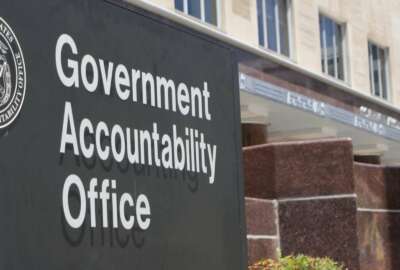

Hubbard Radio Washington DC, LLC. All rights reserved. This website is not intended for users located within the European Economic Area.
When the army awarded a major contract for communication support services in U.S. Central Command without explaining itself, the Court of Federal Claims ordere...
Best listening experience is on Chrome, Firefox or Safari. Subscribe to Federal Drive’s daily audio interviews on Apple Podcasts or PodcastOne.
Federal agencies generally have a lot of discretion when it comes to their procurement decisions, but not explaining why they did what they did can be a recipe for bid protests. That’s exactly what happened when the army awarded a major contract for communication support services in U.S. Central Command. The Court of Federal Claims has now ordered the army to go back and fix problems with the 2019 award decision. To talk more about the case, Federal News Network’s Jared Serbu on the Federal Drive with Tom Temin was joined by Joe Petrillo, a procurement attorney with Smith, Pachter, McWhorter.
Interview transcript:
Jared Serbu: This is actually a case that we’ve talked about before when the Court of Federal Claims actually made its decision on the merits. But the judge was not at that time, I guess, ready to decide exactly what the remedies should be for this successful protester. Do you want to just just recap what that initial decision was and what the underlying issues are here?
Joseph Petrillo: Sure. The Department of Defense has a regulation, which says that if an agency is inviting competitive proposals, and the resulting contract is expected to exceed $100 million, then the contracting officer should conduct discussions during the course of the procurement. In an earlier decision in this case, the case is IAP Worldwide Services versus United States. The situation was that the agency decided not to conduct discussions, this was the army. And they issued a very conclusory decision about why that was the case, didn’t really explain the reasons. So when the procurement was protested, the court found that the Army had run afoul of this regulation. Now, because the regulation said should, not shall, the army did have some discretion about whether or not to conduct discussions. But here, its decision not to do so didn’t seem to comport with the regulation which which made conducting those discussions the default position. Further complicating the matter, the protesters proposal had been rated unacceptable, and to the extent to which it was really harmed by this was somewhat iffy. So the court asked the parties for more information about what remedy was appropriate. And they reported back and the court issued now another decision.
Jared Serbu: Yeah, and unlike the army’s conclusory decision, this one is definitely not conclusory. The court spends a good 40-plus pages explaining all the options that it had for awarding relief, which path did the judge eventually land on?
Joseph Petrillo: Eventually, it decided that in this particular case, the proper decision was to go forward with a remand to the agency with some instructions. The judge got to that conclusion after looking at all the other alternatives, and writing really a very scholarly but thorough and clear explanation of when the various types of relief are appropriate. There are four possible remedies in a bid protest case. One is monetary, the winning party can get its bid or proposal preparation costs. But that’s really only done when the when the protester gets no other relief. And the legal wrong means that it’s wasted its money, in pursuing the contract. There are three other categories of relief that are non-monetary. And these can overlap, but they can be used in combination with each other. The most well known one of these, I think, is an injunction. That’s a judicial order that mandates or prohibits particular conduct. And it’s backed up with the courts contempt power. So it’s something of an extraordinary remedy. And it’s not easy to get. In fact, the protester has to meet four tests before it could get an injunction. And that means that those tests have to show success on the merits. It has to win its protest, on the legal issue that it’s raised. It has to show this harm can’t be remedied with a monetary award. That’s called irreparable harm. It also has to show that its harm outweighs the harm to the other parties in the protest. The government and the other competitors, and that issuing the injunction would serve the public interest. Needless to say, to get over all those hurdles with pretty strong evidences is a heavy lift. Going beyond that, another alternative is the declaratory relief. Here, the court isn’t so much redressing past wrongs as setting the stage for future compliance. It is particularly helpful, for instance, where the issue is what is the proper interpretation of a contract or a solicitation? Or the proper interpretation of a statute or regulation. So even though this type of relief doesn’t compel conduct, it does give the parties guidance about how to deal with each other and how to deal with these issues in the future. And if a party decides to ignore the court’s guidance, well, the wronged party to the procurement can go back to court and seek additional relief.
Jared Serbu: And so the final decision here, the court, it looks like picked a couple different options from the menu and blended them. Where did the judge eventually land?
Joseph Petrillo: The judge landed eventually with a remand. And those often have instructions. And although he didn’t lay out the instructions in detail, he basically said that on remand, the the army needed to act consistently, with the proper requirements of the regulation, as he explained them in the first decision. This is the proper remedy when the agencies acted improperly, but it still retains some discretion. And here the army still had some discretion about whether it was going to conduct discussions, and who it was going to include in the competitive range, if it did. So the army now has the obligation to go back and make a decision by August 8, about whether it wants to conduct discussions and justify that decision if it decides not to. Justify it properly under the regulations. And if it does go forward with discussions, it has to make a determination of which offerers are going to be put in the competitive range. And those are the ones that are that are going to actually have discussions with the army.
Jared Serbu: But the judge gave the army two very specific options and said you must choose one of these. So I guess what I wonder is, is that some form of injunctive relief in and of itself. Because the court is not just telling the army go back and rethink everything and come to a different conclusion. He’s giving them two specific choices.
Joseph Petrillo: Sure, if the army wants to go forward with the procurement, it first has to figure out whether or not discussions are warranted in this case. And if it does decide that, then it has to figure out a competitive range. And I think you’re right, in a sense, that is injunctive. Because that’s what the regulation requires. And the army didn’t do that here, at least not properly, in the view of the court. So on remand, it’s got to go forward and figure all that out. Theoretically, maybe the army could cancel the solicitation and start all over again, but having invested as much time and effort in it, not sure that’s what it wants to do.
Jared Serbu: Yeah. And I suppose if the army goes with option one, which is essentially just elaborate on the reasons it didn’t engage in discussions, and still doesn’t do discussions, the same, unsatisfied bidder, could go right back to court, right and drag this out even further. Even after this. I mean, the source selection decision was I think, two years ago?
Joseph Petrillo: Yep. It’s been awhile. That’s a very good observation, because the judge did lay out one difficulty going forward with simply saying, “No, we’re not going to conduct discussions and justification for it”. There is a legal doctrine that says we’re not going to accept post hoc rationalizations for a decision. So the reasons advanced by the army, if it makes the same decision, has to be reasons that were available to it in the initial situation when it made the decision, but simply weren’t adequately articulated or explained. And that can get tricky. So if the army still decides that it doesn’t want to conduct discussions here, there’s probably going to be some argument about whether or not its reasons amount to a post hoc rationalization,
Jared Serbu: it sounds like potentially the entire problem for the Army here was it just didn’t explain its reasoning for not engaging in discussions. And if it had done that, nobody would be here.
Joseph Petrillo: That’s exactly the case. And that’s something that is characteristic of a lot of bid protest decisions. The army and other federal agencies often have a lot of discretion about what they do. But they can’t just make a decision and say, well, it’s up to us. It’s our discretion. There have to be reasons for it. There has to be a rational explanation of why the facts that exist, justify the decision that’s made. Failure to do that is the major reason why bid protests gets sustained, especially at the Court of Federal Claims.
Jared Serbu: That’s Joe Petrillo, a procurement attorney with Smith, Pachter McWhorter.
Copyright © 2024 Federal News Network. All rights reserved. This website is not intended for users located within the European Economic Area.
Jared Serbu is deputy editor of Federal News Network and reports on the Defense Department’s contracting, legislative, workforce and IT issues.
Follow @jserbuWFED



